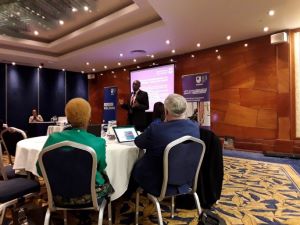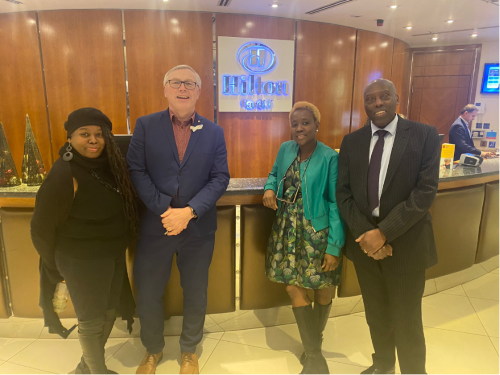Connecting through Culture
Blog post by Tot Foster
On the 8th December I went to a one-day conference ‘Overcoming Reliance on Gatekeepers: Addressing Racial Equity Through Meaningful Partnerships and Collaboration with Black and Minority Ethnic Communities at a Local Level’.
This was organised by Fidele Mutwarasibo, the Director of CVSL. All the speakers had been involved in projects which were overcoming one particular barrier to participation in all sorts of social structures and organisations; the actions of ‘gatekeepers’ rather than ‘bridge-builders’.

As Fidele and several other speakers emphasised; no-one is ‘hard to reach’ – the real problem is not making enough effort to access or include them – and gatekeeping makes that access more difficult.
Yaina Samuels powerfully advocated for the power of one-to-one conversation with individuals: ‘You want to build up trust… then everything else will come’.
One project really resonated with my work. This is a collaboration between the Open University and SASS - Swansea Asylum Seeker Support.
Marie Gillespie and Tom Cheesman spoke about how they wanted to find a way of sharing creative responses to living as an asylum seeker or refugee in the pandemic; connecting people through their smartphones. ‘Cov19: Chronicles from the Margins’ has received many and varied artworks; photos, paintings, poems, videos.
These are presented on a public facing website cum gallery https://cov19chronicles.com/the-project/.
What started as local to Swansea, including digital skills development, grew to be truly international.
The project acknowledges and draws on the huge expertise held by asylum seekers and refugees –in international migration, international law, local support etc. In academic terms it’s the co-production of knowledge about the lived experiences of those with precarious migration status during the pandemic.
On another level it is an outpouring and connection between those who share painful experiences, and for those of us who haven’t been close to those experiences, a compassionate but stark window onto what’s going on for individuals living in our communities; as Marie described it ‘a collective mobilisation of everyday experience’.

It was interesting to hear the very varied ways in which the idea of gatekeepers was represented – from Fidele talking about community leaders, through local government anti-racism practices that in the past emphasises reports rather than implementation, or relied on consulting with large organisations rather than at the grassroots, through to university ethics procedures that put barriers in the way of the SASS collaboration being able to be agile and responsive.
But what all the speakers had in common was the importance of getting to lived experience, involving, and listening to what people say about their daily encounters, practices, and emotions, and then building that understanding into projects and services.
Charlotte Amoss from Cardiff Council spoke of ‘collaborative solutions…locally owned’.
Tot Foster is a freelance researcher currently working on projects at the Open University and the University of Bristol on projects based broadly on digital inclusion and co-design.
